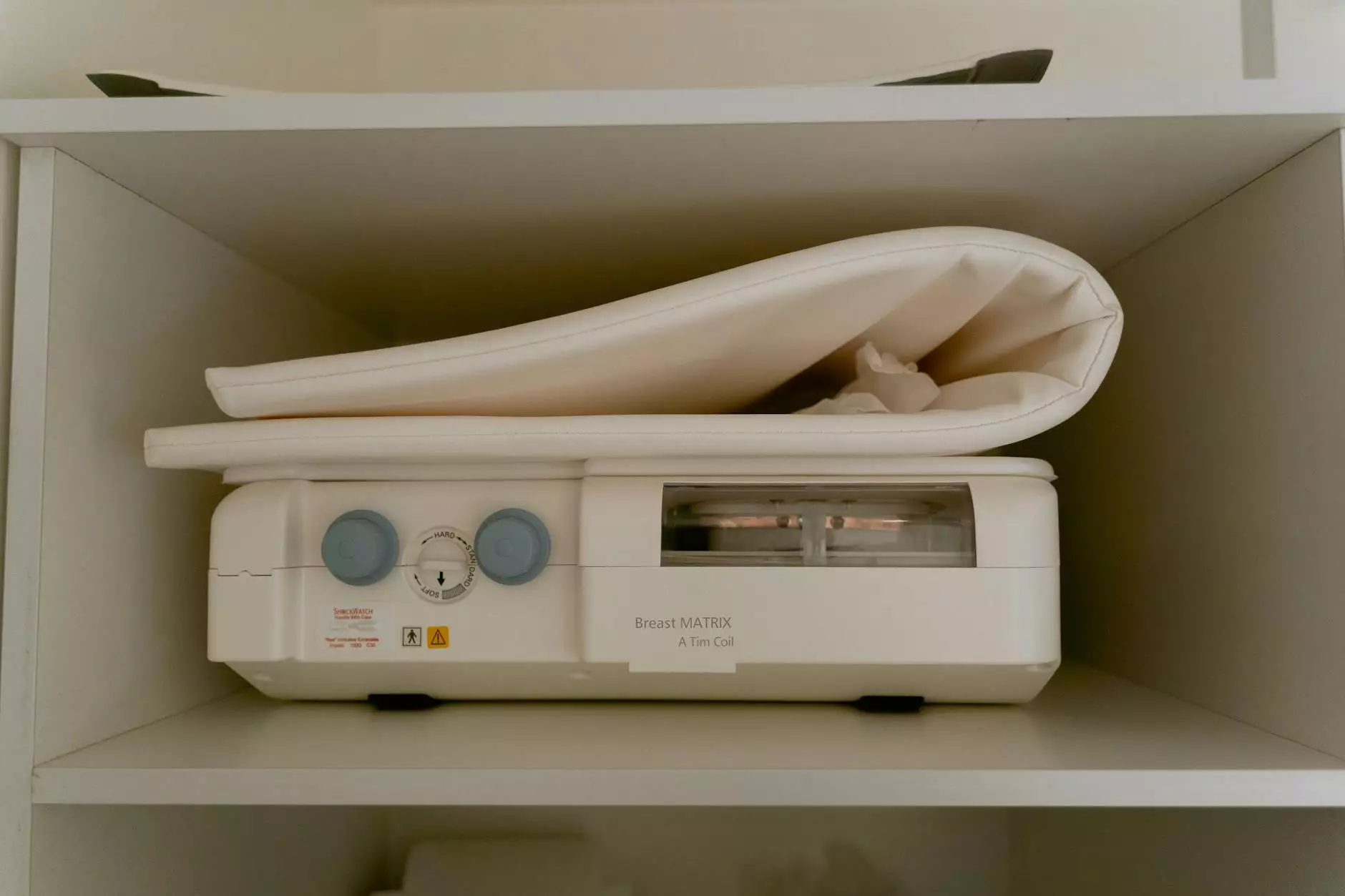Enhancing Patient Care Through MRI Medical Device Service

The field of health and medical services is forever evolving, and one significant aspect driving this change is the advancement of medical imaging technologies. Among these, MRI (Magnetic Resonance Imaging) stands out as a crucial tool used in diagnostic services to provide in-depth images of the organs and tissues within the human body. However, the efficacy of MRI technology heavily relies on the proper functioning and maintenance of the MRI medical device service.
Understanding MRI Medical Device Service
At its core, MRI medical device service includes a range of support services designed to ensure that MRI machines operate at optimal levels. This includes installation, routine maintenance, calibration, emergency repairs, and technical support. Proper maintenance of these systems is essential to guarantee accurate imaging results, which ultimately affects treatment decisions.
The Importance of Regular Maintenance
Regular maintenance is critical in the healthcare setting for various reasons:
- Accuracy of Diagnostics: Ensuring that the MRI device operates correctly affects the quality and accuracy of the diagnostic results. An improperly maintained machine can lead to unclear images, resulting in misdiagnoses.
- Patient Safety: Medical imaging devices, such as MRI machines, must meet stringent safety standards to ensure patient safety. Regular inspections help identify potential hazards and prevent harm.
- Cost Efficiency: Routine maintenance can significantly reduce the likelihood of unexpected repairs. By investing in regular services, healthcare facilities can save money on costly emergency repairs and replacements.
- Increased Equipment Lifespan: Consistent care and maintenance extend the lifespan of MRI machines, providing healthcare facilities with long-term utility and reducing the frequency of equipment purchase.
MRI Device Installation: A Critical First Step
The installation of an MRI device is a critical process that requires expert guidance. Factors such as room shielding, power supply, and proper ventilation must be thoroughly assessed before a machine can be installed. Here are the steps involved:
- Site Assessment: Prior to installation, a comprehensive site assessment is conducted to ensure that the location is suitable for an MRI machine.
- Shielding Requirements: MRI machines require specific shielding to prevent electromagnetic interference. Proper shielding protects both the equipment and the surrounding areas.
- Utility Considerations: Adequate power supply and cooling systems must be defined before the machine is installed to ensure seamless operation.
- Final Calibration: After installation, technicians perform detailed calibration of the MRI device to confirm it meets all specifications and functions correctly.
Emergency Repairs and Technical Support
Even with regular maintenance, unforeseen issues can arise with MRI devices. This is where emergency repair services become vital. Prompt technical support ensures minimal downtime for MRI machines, allowing healthcare providers to continue delivering services to patients without significant delays.
Key Features of a Robust Emergency Service
- Fast Response Times: In emergencies, quick response is crucial. A proficient MRI service provider will have technicians on-call to address urgent issues.
- Expert Technicians: Skilled technicians familiar with the intricacies of MRI devices can diagnose and repair faults quickly and effectively.
- Comprehensive Inventory: Maintaining a readily available inventory of replacement parts is essential for timely repairs.
- Preventive Recommendations: After resolving an issue, knowledgeable technicians provide recommendations to prevent future breakdowns.
Trends and Innovations in MRI Device Services
The field of MRI technology has seen significant advancements in recent years, influencing the landscape of MRI device services:
1. Advanced Imaging Techniques
With the advent of new technology, MRI machines now employ advanced imaging techniques that require specialized service knowledge. Staying updated with these trends is essential for technicians to effectively manage and maintain modern devices.
2. Remote Monitoring
Remote monitoring systems allow service providers to track the performance of MRI machines in real time, predicting potential issues before they lead to major breakdowns. This prevents service disruptions and maintains patient care quality.
3. Artificial Intelligence Integration
AI technology is being incorporated into MRI services to enhance diagnostics. Training staff on how to interface with these systems is becoming increasingly important in the field, ensuring an efficient and effective operation.
The Role of Quality Assurance in MRI Medical Device Service
Quality assurance (QA) plays a fundamental role in the performance and reliability of MRI medical imaging devices. It encompasses:
- Protocol Development: Establishing protocols for machine use, ensuring staff are well-trained, and that safety standards are maintained.
- Routine Calibration: Regular calibration ensures the imaging output meets specific quality standards.
- User Training: Ongoing training for staff enables optimal usage of the MRI machines, promoting a safer and more accurate diagnostic process.
The Benefits of Partnering with a Professional Service Provider
Choosing the right MRI medical device service provider is crucial for healthcare facilities. Here are the benefits of partnering with a professional:
- Expert Knowledge: A professional service provider offers specialized expertise and an in-depth understanding of MRI technology.
- Tailored Solutions: Services can be customized to meet the unique needs of each facility, addressing varying requirements based on location and equipment type.
- Peace of Mind: Knowing that health facilities have a reliable service partner who ensures equipment is functioning optimally provides peace of mind.
Conclusion
In summary, the significance of MRI medical device service cannot be overstated within the healthcare landscape. With proper installation, routine maintenance, emergency repairs, and evolving technologies, healthcare facilities can ensure they deliver accurate and reliable imaging services. By prioritizing these services, we can enhance patient care, bolster diagnostic effectiveness, and contribute to the overall advancement of the health and medical sector. For medical centers looking for premium MRI device services, partnering with a reputable provider like Echo Magnet Services is essential to achieving excellence in patient diagnostics.



